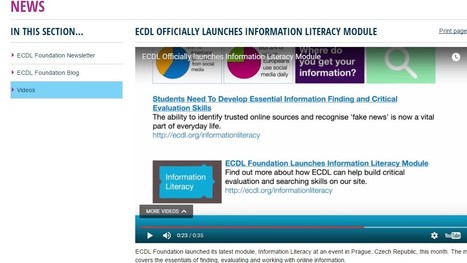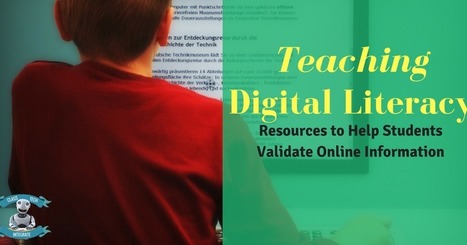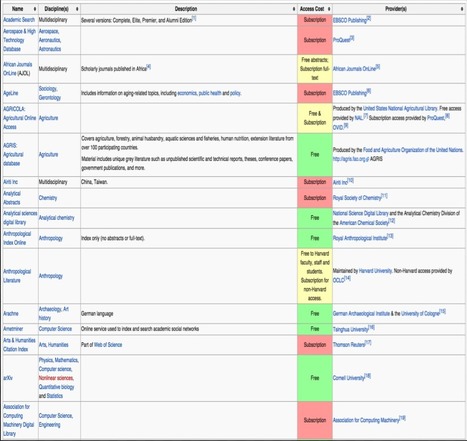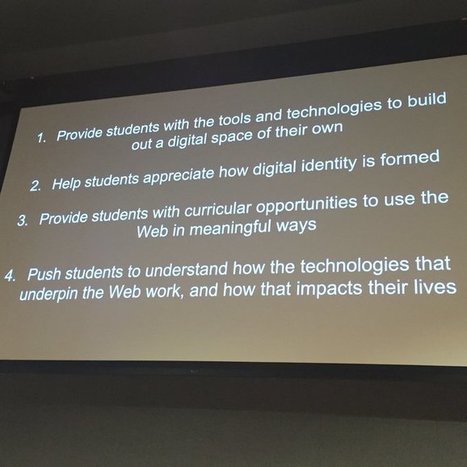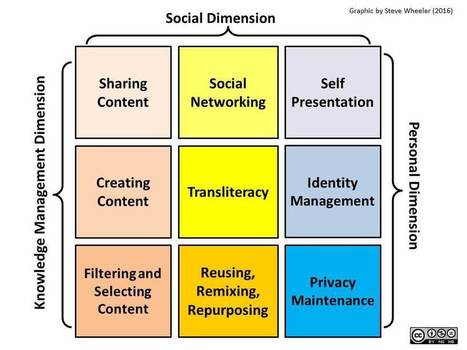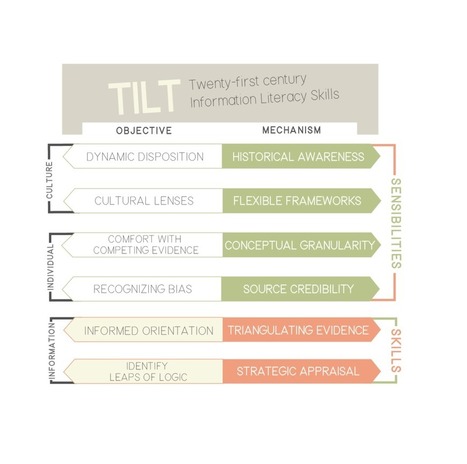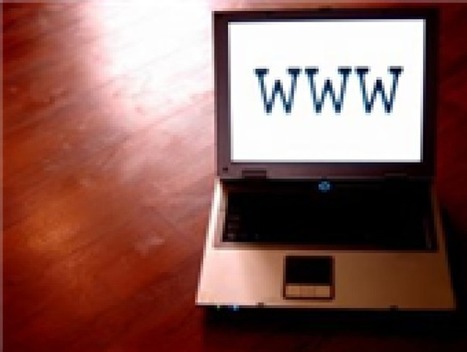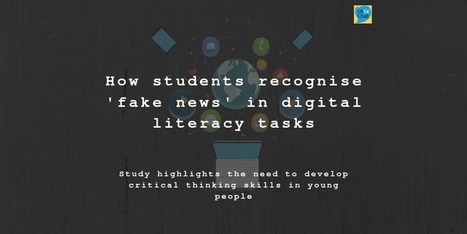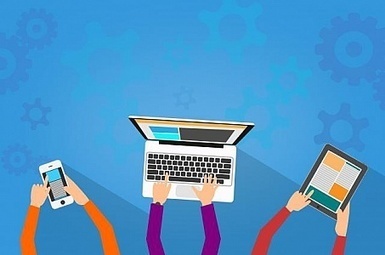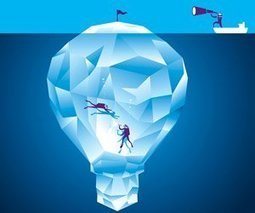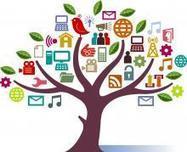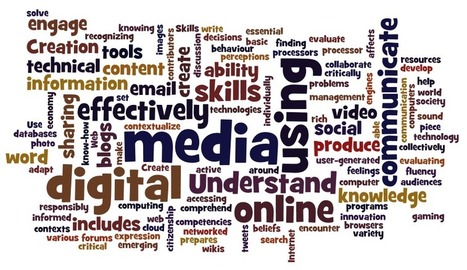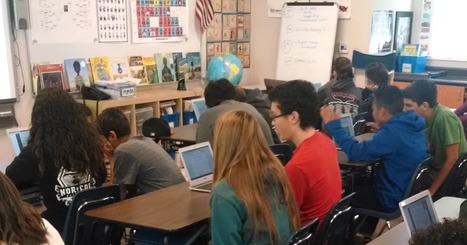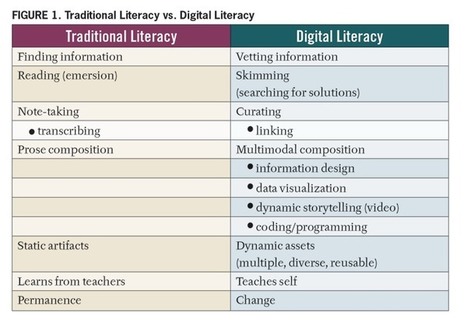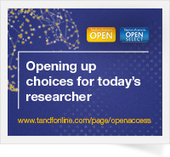 Your new post is loading...
 Your new post is loading...
In our 24/7, always-connected world where we are inundated with information from all sides, the ability to identify quality resources to inform our research and actions has become a major focus in higher education. Digital Content Curation, as it is called, is something that many faculty believe they should be teaching their students, but they are not sure where to start. I have created a model of Digital Content Curation that faculty can use to help students sharpen their digital literacy and research skills (Garner, in press).
Via Elizabeth E Charles
The Internet is a swelling ocean of information, and navigating through its steady flow can often be challenging. This is certainly true for a student who is not information fluent, so what are some smart online research strategies? Luckily this question falls within the realm of Information Fluency, which involves the 5As process: - Asking the right questions
- Acquiring the knowledge
- Analyzing the content for relevancy and credibility
- Applying the knowledge to our use
- Assessing the effectiveness of our message
Via Elizabeth E Charles
ECDL Foundation launched its latest module, Information Literacy at an event in Prague, Czech Republic, this month. The module covers the essentials of finding, evaluating and working with online information.
Via Elizabeth E Charles
A blog out integrating technology in the classroom. This includes tips for 1:1 classrooms, blended learning, flipped classrooms, and more.
Digital Literacy is a term that is growing ever more popular among those teaching our 21st Century Learners. Also known as Information Literacy, Digital Literacy is an important component of what is known as Digital Citizenship. It is a skill that many children and adults grapple with. One of my favorite memes on the topic is right here!
Via Elizabeth E Charles
What does digital literacy mean in 2016? I'm currently working with the New Media Consortium (NMC) on a research project (supported by Adobe) aimed at answering that question, and you can play a part. We're surveying people to see what they currently think is in digital literacy: technical skills, human skills, policies, platforms, and definitions.…
Via Elizabeth E Charles
Information Literacy started out as library skills. How do we update these essential tools to help us navigate the digital age?
Via Elizabeth E Charles
Author(s): Trudi Jacobson, Greg Bobish, Deborah Bernnard, Daryl Bullis, Jenna Hecker, Irina Holden, Allison Hosier and Tor Loney
Good researchers have a host of tools at their disposal that make navigating today’s complex information ecosystem much more manageable. Gaining the knowledge, abilities, and self-reflection necessary to be a good researcher helps not only in academic settings, but is invaluable in any career, and throughout one’s life. The Information Literacy User’s Guide will start you on this route to success. The Information Literacy User’s Guide is based on two current models in information literacy: The 2011 version of The Seven Pillars Model, developed by the Society of College, National and University Libraries in the United Kingdom and the conception of information literacy as a metaliteracy, a model developed by one of this book’s authors in conjunction with Thomas Mackey, Dean of the Center for Distance Learning at SUNY Empire State College. These core foundations ensure that the material will be relevant to today’s students.
Via Elizabeth E Charles
‘Digital literacy’ is one of those buzz words floated by experts as being granular to 21st century students. It’s everywhere, on everyone’s tongue, but figuring out what it …
Via Elizabeth E Charles
Need a good search engine? Here is a comprehensive list of the top search engines on the Web.
Via Elizabeth E Charles
What is Information Literacy? “Information literacy forms the basis for lifelong learning. It is common to all disciplines, to all learning environments, and to all levels of education. It enables learners to master content and extend their investigations, become more self-directed, and assume greater control over their own learning.”(1) The Presidential Committee on Information Literacy defined information literacy as a set of skills, which require an individual to: “recognize when information is needed and have the ability to locate, evaluate, and use effectively the needed information.”(2) In January of 2000, the Information Literacy Competency Standards for Higher Education were approved and in February of 2004, the American Association for Higher Education and the Council of Independent Colleges endorsed them.(3) The Standards dictate that an information literate person:
Via Elizabeth E Charles
Technology can be an absolute lifesaver for students in higher education. It can help you communicate and collaborate, keep you organized, help to improve your writing, and even help expand your future employability. Unfortunately, too many students already have poor tech habits that can undermine their education and future success, such as engaging in portable …
Via Elizabeth E Charles
|
A recent study revealed students at an international school in Finland significantly outperformed U.S. students on tasks which measure digital literacy in social media and online news. The researchers suggest this may be due to the Finnish and International Baccalaureate curricula’s different way of facilitating students’ critical thinking skills compared to the US system and curriculum. The results of this study were published in the Journal of Research in International Education in April.
Via Elizabeth E Charles
"In this technology-immersed world, students need to know how to navigate the digital environment safely. From discerning real news from propaganda to managing their reputation online, so much of their future is dependent on possessing digital literacy skills. Teachers have to step up to the plate and integrate digital literacy into the curriculum and model it through their actions. In this article, we will discuss 10 ways that digital age teachers model digital literacy and leadership."
Via EDTECH@UTRGV, Elizabeth E Charles
Students would be wise to learn the strategies fact-checkers use to evaluate online information, write Sam Wineburg and Sarah McGrew.
Via Dean J. Fusto, Elizabeth E Charles
What is digital and information literacy?
"Digital literacy defines those capabilities which fit an individual for living, learning and working in a digital society." JISC
In the context of OU study, digital literacy refers to the skills and capabilities of OU students using digital technologies to achieve personal, study and work-related goals.
Via Elizabeth E Charles
This text is a remixed version, derived from SUNY's "The Information Literacy User’s Guide: An Open, Online Textbook". The text has been tailored to reflect the educational objectives of The College of New Rochelle and its School of New Resources. Feel free to remix and adapt in accordance with the CC-BY-NC-SA 3.0 license.
Via Elizabeth E Charles
Digital literacy is like any other core curricular subject. It is no longer an option, just as reading and math are not. Students must be digitally competent if they are to be successful in school and in their professional and personal lives as adults. Indeed, 3 out of 4 of the best jobs for many years to come will involve digital expertise.
Via Elizabeth E Charles
Dan Russell writes: "There’s a difference between knowing that something exists, being able to find it rapidly with a moment’s worth of research, and then being able to pull together multiple sources of information into a coherent analysis.
In particular, the research skills gap is growing. Students (and teachers, and for that matter, employees) who are able to do rapid and accurate research on a topic have a substantial advantage in getting things done and deepening their understanding.
What’s more, there’s an unexpected second-order effect: those that have developed and sharpened their research skills can grow those research skills over time, increasingly widening the gap from their peers who haven’t mastered that self-teaching nuance. Having research skills isn’t just an optional part of your education—they’re essential. Especially once you know how to do the research to upgrade your research skills."
Via Mary Reilley Clark, Elizabeth E Charles
Another free e-book arising from an information literacy class: Alison Hicks has edited a volume of essays from her class of library students (at the University of Denver), to form an engaging book aimed at librarians teaching information literacy. Hicks, A. (Ed.) (2016). Got a minute? Instruction tune-up for time pressed librarians. Pressbooks. http://gotaminute.pressbooks.com/
Via Elizabeth E Charles
Both the 21st-century economy and the careers needed to fuel it are changing at an unprecedented rate. Students must be prepared for nonlinear careers, pivoting to match the ever-changing work landscape. We thus need to rethink not just how we teach our students but what we teach our students.
Via Peter Mellow, Elizabeth E Charles
The World Wide Web is this generation’s defining technology for literacy. It facilitates access to an unlimited amount of information in a participatory learning space.
Via Elizabeth E Charles
(2013). Information Literacy for Health Professionals: Teaching Essential Information Skills with the Big6 Information Literacy Model. Community & Junior College Libraries: Vol. 19, No. 3-4, pp. 77-91. doi: 10.1080/02763915.2014.953435 Health professionals frequently do not possess the necessary information-seeking abilities to conduct an effective search in databases and Internet sources. Reference librarians may teach health professionals these information and technology skills through the Big6 information literacy model (Big6). This article aims to address this issue. It also exposes the possibilities of applying the Big6 model in health sciences libraries and other informational contexts, based on several instances of successful integration of this model into information literacy programs in health sciences environments as well as several instances of using the model for solving diverse information problems within this context. This model promises to be practical for reference librarians and information professionals who are interested in a different approach to instructional and information literacy work in health sciences libraries, thus the paper suggests to take a closer look at Big6.
Via Elizabeth E Charles
With so much information readily available in a range of multimodal formats, from text to multimedia, apps and social networking, we need to blend technological learning and critical literacy together so that students can critically appraise the information that they are accessing. Teaching digital literacy is something that can be embedded into regular teaching in all subjects at all stages of education. To do that, it needs to be explicitly taught and reinforced by every teacher in every subject in a way that is appropriate for students.
Via Nik Peachey, Elizabeth E Charles
|



 Your new post is loading...
Your new post is loading...





